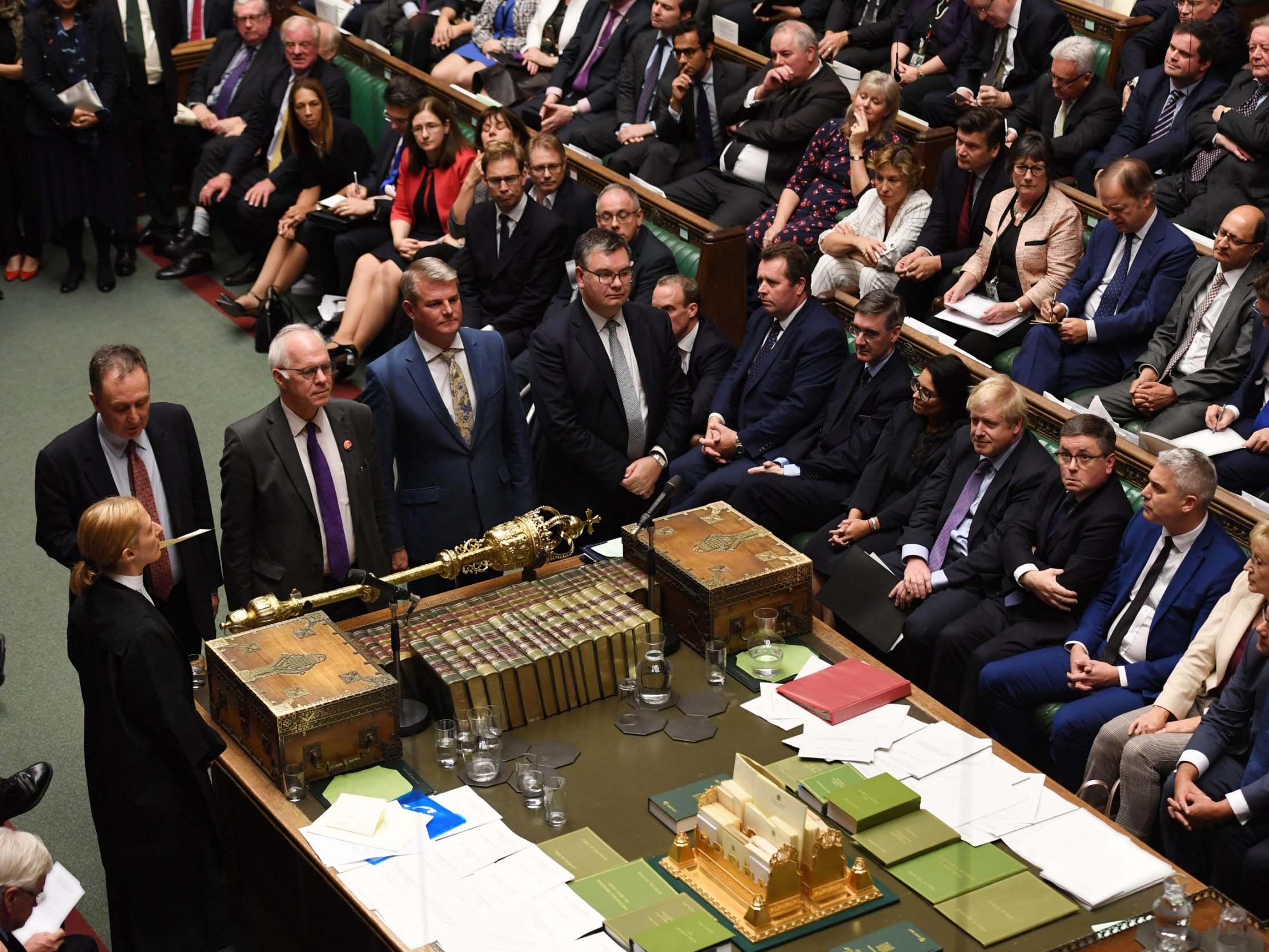Female MPs more outspoken in debates led by women, study finds
Gender of cabinet minister leading discussion has no bearing on male MPs’ input, authors say

Your support helps us to tell the story
From reproductive rights to climate change to Big Tech, The Independent is on the ground when the story is developing. Whether it's investigating the financials of Elon Musk's pro-Trump PAC or producing our latest documentary, 'The A Word', which shines a light on the American women fighting for reproductive rights, we know how important it is to parse out the facts from the messaging.
At such a critical moment in US history, we need reporters on the ground. Your donation allows us to keep sending journalists to speak to both sides of the story.
The Independent is trusted by Americans across the entire political spectrum. And unlike many other quality news outlets, we choose not to lock Americans out of our reporting and analysis with paywalls. We believe quality journalism should be available to everyone, paid for by those who can afford it.
Your support makes all the difference.Women MPs are significantly more outspoken and exert greater influence in parliamentary debates where the cabinet minister leading it is also a woman, a study has found.
Researchers at University College London found the gender of the cabinet minister has no bearing on male politicians' input.
The study, published in the British Journal of Political Science, is the first piece of research to examine whether women’s leadership influences how political debate unfolds.
Researchers found women MPs contributed 20 per cent more when debating a female cabinet minister.
Dr Jack Blumenau, one of the study’s authors, said: “The results show that female leadership has important effects on the experiences of female MPs in political debate. Not only is it vital for participation, it also matters for ensuring that the interests of women are represented in the policy process and that the issues female MPs raise are worthy of governmental concern.
“One interpretation of the results is that the appointment of a female cabinet minister creates a role model effect in a legislative setting. It is plausible that, given women are underrepresented in cabinet positions in the UK, the women who are promoted are seen as exemplars of success, and their presence acts as a motivation and inspiration for their junior colleagues.
“At the same time, in the UK female politicians employ a distinct form of language and debating style that is more cooperative, approachable and practical than that of their male colleagues. This suggests the effects that such leaders have on other women may in part be driven by the ways in which they interact with MPs during political exchanges.”
Women’s presence in senior cabinet positions serves to disrupt historical trends, “reverse outdated ideas”, and generate a “level playing field” in which women’s voices are not overlooked, Dr Blumenau added.
Researchers found women made up roughly one-fifth of the seats in parliament but only constituted one-tenth of the speaking time in a typical parliamentary debate.
The study looked at 14,320 debates and almost half a million speeches between 1997 and 2017 which covered a broad array of parliamentary business – including Ministerial Question Time and significant motions.
The UK comes 39th in a world ranking terms of the proportion of women in its parliament – lagging behind Serbia, Tunisia, South Africa, among other nations.
The study comes amid mounting calls for the next Labour leader to be a woman – with six of the seven candidates considered likely to throw their hat into the ring currently being women.
While John McDonnell has called for a woman leader and a “non-metropolitan candidate”, Stephen Kinnock has also said the next party leader should be a woman.
Women MPs stood down before the general election due to being subjected to “horrific abuse” and parliament becoming increasingly “bullish” and “intimidating” for women, campaigners previously warned.
While a record number of women MPs were elected to the House of Commons following the recent general election, they are still outnumbered. Some 220 women won seats in the 2019 poll, 12 more than two years ago.
The ratio of female MPs in the Commons is still just 34 per cent and the different political parties vary massively in terms of gender breakdown.
Only one in four Conservative Party MPs are female but the party has 20 more MPs than it did at the last election.
The Labour Party now has 104 women MPs – marking the first time either the Tories or Labour has had more female than male representatives in parliament.
Join our commenting forum
Join thought-provoking conversations, follow other Independent readers and see their replies
Comments